Reflecting on our direct action in Portland, Maine on Friday February 2 has been interesting. I went straight there from presenting at a UNAC webinar on War & Climate because I had accidentally double booked myself. Now I've had a few days to reflect because after publishing a brief blog post I had family plans over the weekend. This gave me some time to see the many responses to both my own post and to other coverage shared on social media.
I'm not going to try and make these observations into a coherent narrative. They're so varied that may not even be possible.
o The public is very angry with police when they allow roads to be blocked without taking immediate action to clear the blockage. I was told at another action that Maine people in particular are angry with police over their slow response to the Lewiston mass shooting last October.
o My experience with Maine police in various cities is that they are polite to white people. At least old, apparently affluent white people. Maybe because we look like we might have the resources to sue them for police brutality or other mistakes?
o Attitudes toward the police are one of the ways in which organizing with both boomers and younger generations is challenging. Representing the boomers, I see police as working class but confused -- as most are in the U.S. -- about where their class interests reside. I always believe they could change their minds, though they may not be in a position to lose the income.
o Younger activists may taunt police with insults or call them out for doing routine aspects of their job like clearing a blocked road by arresting people engaging in direct action. To me this seems like an indulgence and not productive for the goals of the direct action. I am very open to hearing other opinions on this.
o Younger activists are under much more economic pressure, generally, than are retirees like myself. Risking arrest for them is a much higher risk. They may have experienced or witnessed police brutality. They may not be able to get time off work to appear in court. They may not have money for the bail bond person's fee, or be able to pay a fine if one is levied. Support in this area could be crucial in enabling their participation.
o Security culture for younger organizers is extremely demanding and pretty much all new learning for me. When I've blocked a road or failed to disperse in the past, I did so without much attempt to hide the organizing or our intention to risk arrest.
o Security culture versus attracting large numbers for actions are in direct conflict. This is a key point. How long could we have held the blockade of exit 7 in Portland if more of the 200 people who were there felt they could risk arrest? How many more people could we have brought to the rally if we were more explicit about our plans?
o In some ways I'm surprised that younger activists even put up with us oldsters. At the last four direct actions I've attended, all but one had incidents where an older white person (not an organizer, just an attendee) started trying to boss around the folks doing the direct action. In one case, a rich dude who gives a lot of money to the Democratic Party screamed at people holding a banner and insisted they stop blocking one of many entrances into Bath Iron Works (they kept blocking it anyway). In another case, an older white person who does a lot of tone policing admonished people engaging in action at a senator's house where no one was home except a barking dog many believe was a tape recording. And, in the third case, an older white man hollered repeatedly at chant leaders in Portland to be quiet so the police could speak.
o Jail support culture among younger organizers I've been working with is amazing. What I've experienced in the past ranged from neglectful to well-organized, but nothing at such a high level of nurturing. And this is ongoing as we consider the legal ramifications of our arrests.
o Portland Police seemed confused about their own procedures and protocols, but were mostly polite and respectful, at least in my presence. The pair of officers who cuffed me were rough with my wrists and arthritic hands which caused me to yell that they were hurting me. This caused their supervisor to gaslight me claiming I was not being hurt. They may have been rookies because one of them also told me that I was under arrest for trespass. "Trespass?!" I responded with surprise which caused their supervisor to correct them on the charge being obstructing a public way.
o At the Cumberland County jail we sat handcuffed in a rather cold paddy wagon for a while as we were swabbed for a covid test and then had our masks confiscated (one got to keep hers); then had our belongings removed and catalogued (two got to keep their cash, one got to keep her cash and her ID., some got to keep their jewelry, etc.); then were photographed and fingerprinted digitally (the cop doing this told me he had never had such a hard time getting usable prints from anyone before me, "and I have fingerprinted a lot of people." My conclusion: even my hands are becoming ungovernable); offered "chow" which meant nothing to the younger arrestees but was a meal of mac and cheese plus milk (why then did nurses ask me if I had any food allergies and record my answer: "Yes, I am allergic to dairy products"?); and released after signing the sheet agreeing to show up in court on March 21, and to refrain from loitering in the road in the meantime.
o Press coverage was far easier to obtain in Portland than it has been in other nearby towns where police either never appeared or appeared and blocked the roads for us while making no arrests. In case you missed it, here is a list of coverage I've found:
I'll leave you with a quote from the Portland Press Herald article linked above, which I provided after being released from jail when a reporter reached out to me by phone.
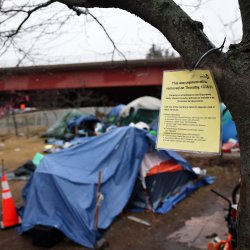
NEWS Maine to receive $20 million federal grant to combat homelessness, domestic violence
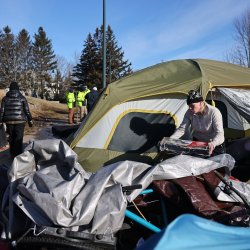
NEWS Hamas shows signs of resurgence in parts of Gaza where Israeli troops largely withdrew

NEWS Following U.S. strikes hitting Yemen, Iran issues warning about suspected spy ships in Mideast

LETTERS Letter: Effective gun safety legislation begins with a phone call

NEWS Maine high court justice says he was passed over for reappointment
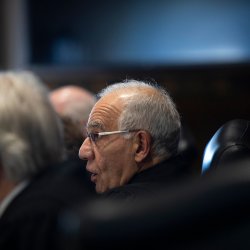
NEWS Massachusetts Senate approves gun bill aimed at ghost guns and assault weapons
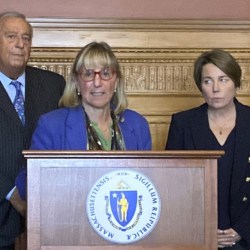
TIMES RECORD Letter to the editor: Unfair criticism of

OPINION The Maine Millennial: Gaza is full of regular, innocent people

NEWS Privacy, public safety at odds when Maine teens are accused of violent crimes
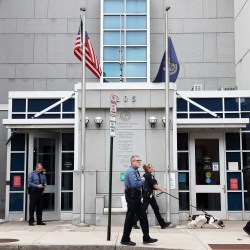
NEWS Brig. Gen. Diane Dunn installed as first woman to lead Maine National Guard
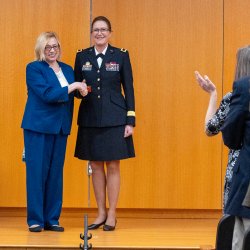



No comments:
Post a Comment
Because of a deluge of spam, I have had to switch to moderated comments. Sorry for the inconvenience.